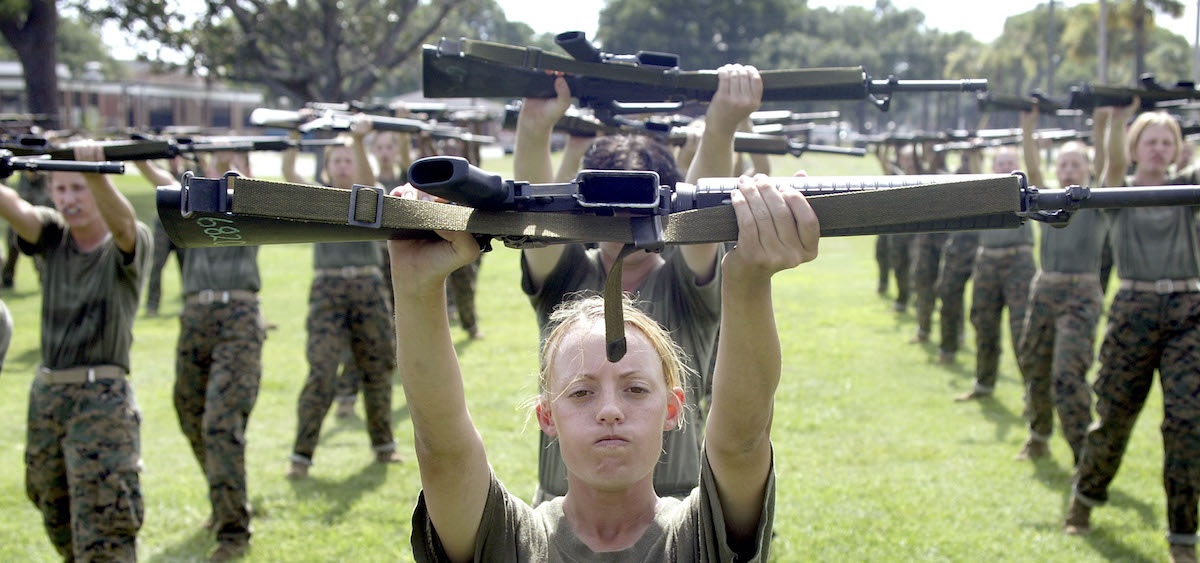Culture

The director of Ohio University’s Veterans and Military Student Services Center shares insights about student veteran experience with WOUB Culture
By: Emily Votaw
Posted on:
Anyone who attends college will undergo an accompanying transitionary period in their life. Regardless of whether they are an 18-year-old fresh from high school or if they are one of the 700 currently enrolled students on Ohio University’s campuses who are also active-duty military personnel or veterans, shifting to an academic atmosphere that you’re not familiar with is no small task.
Terry St. Peter is the Director for the Brigadier General James M. Abraham & Colonel Arlene F. Greenfield Veterans and Military Student Services Center, the Ohio University entity who facilitates the enormous, multi-faceted shift that comes for any military personnel who decide to utilize their educational benefits to attend Ohio University. A big part of what they do is ensuring the correct disbursement of military educational benefits, but that’s far from the only thing the office does.
“We also provide programming within the university that raises awareness about our veterans and the issues and challenges they may face when they’re attending higher education. We want to ensure the university itself is friendly towards veterans and that we are creating a welcoming environment for military affiliated students so that they can be comfortable pursuing their academic endeavors,” said St. Peter.
On Tuesday, October 26 at 9 p.m. ET, WOUB-TV will premiere the new series “American Veteran,” a four-part television series that, much like Ohio University’s Veterans and Military Student Center, works to understand the experiences of those who have served. “American Veteran” presents those experiences entirely through veterans’ voices, not only within the television series but also through the accompanying eight-part podcast and 10-part digital series.
St. Peter emphasized that while he can describe some of the common transition challenges Ohio University’s military affiliated population faces, he absolutely “cannot speak for every veteran, nor would I even attempt to do that!”
“I often tell people ‘if you’ve met one veteran, you’ve met one veteran. ’Every veteran is different. And every veteran faces these challenges differently but there are some common transition challenges I would just want the wider Ohio University community to be aware of,” said St. Peter.
One of those difficulties is the tricky subject of primary identity.
“Coming out of a time of war or even just coming out of a general military culture and into an academic one can be pretty tough,” he said. “Not only is there a potential age difference for many of those who use their educational benefits at Ohio University as compared to other students, there is often a major life experience difference for these students as compared to their peers. It’s very different to be a 23-year-old who has just completed combat training or who has been on a deployment compared to an 18-year-old student who has just graduated from high school and who is just learning how to live on their own for the first time in a dorm room. A lot of times veterans are just operating on a very different wavelength than their peers.”
“It’s very different to be a 23-year-old who has just completed combat training or who has been on a deployment compared to an 18-year-old student who has just graduated from high school and who is just learning how to live on their own for the first time in a dorm room. A lot of times veterans are just operating on a very different wavelength than their peers.” – Terry St. Peter, Director of the Brigadier General James M. Abraham & Colonel Arlene F. Greenfield Veterans and Military Student Services Center
Student veterans at Ohio University also sometimes face lingering psychological impacts from their service.
However, although Post-Traumatic Stress Disorder (PTSD) is often associated with veterans, St. Peter explained that those service members certainly “don’t own the market when it comes to PTSD or traumatic brain injury.”
“Those who serve do have an increased risk for potentially being exposed to traumatic events, although this does not mean that every student veteran has PTSD. However, some do, and it is important to be aware of that,” said St. Peter. “If you see that a student veteran is struggling, just understand there might be some things going on with them – not every disability a veteran has is a physical disability. They could be walking and talking just fine, but there may be some mental things a veteran could be challenged with. And, just like you would for anyone else, if you see that happening, you should try to have a conversation with that student veteran and ask them “hey, are you doing okay?””
Find more information on the services provided by the Ohio University Veterans and Military Student Services Center at this link.


